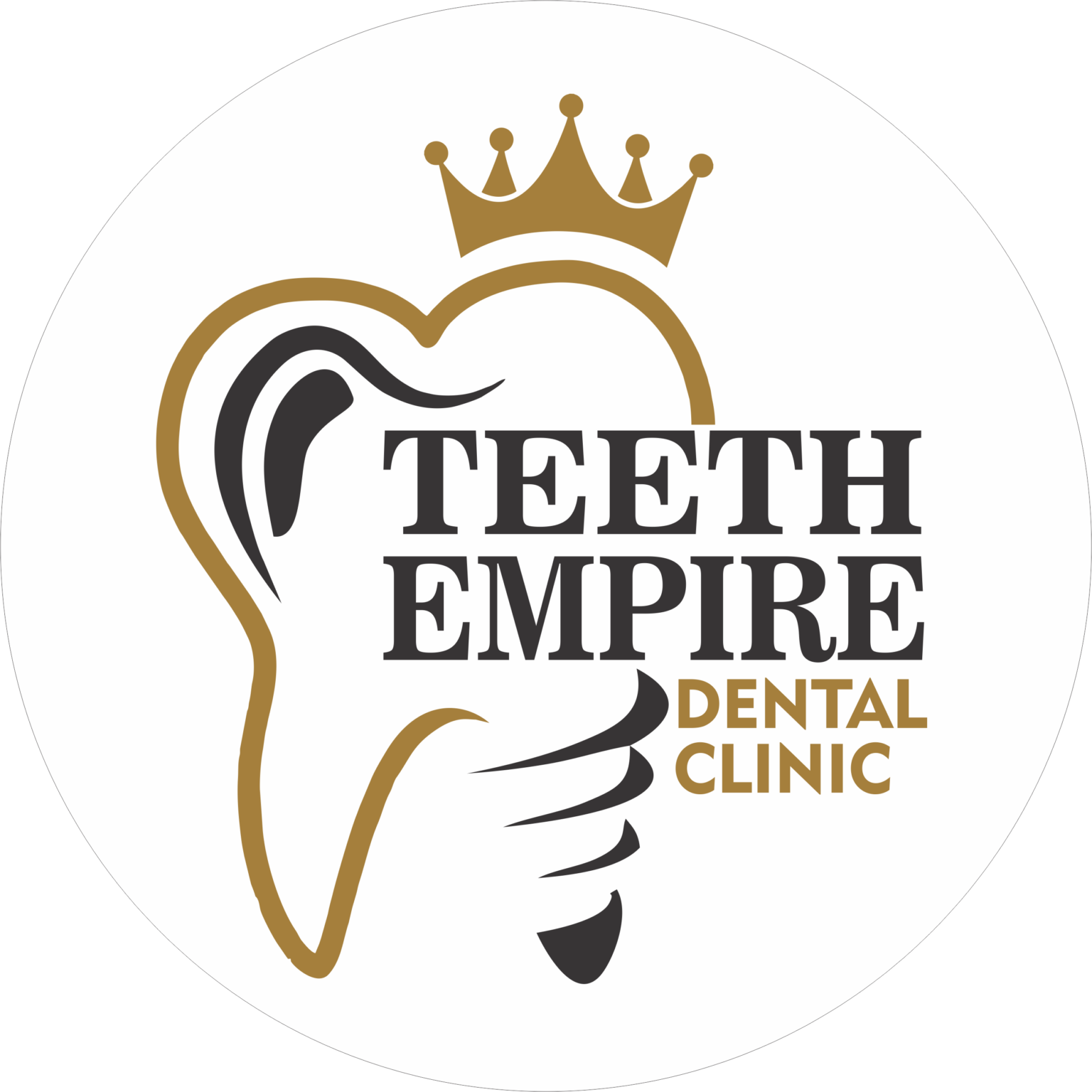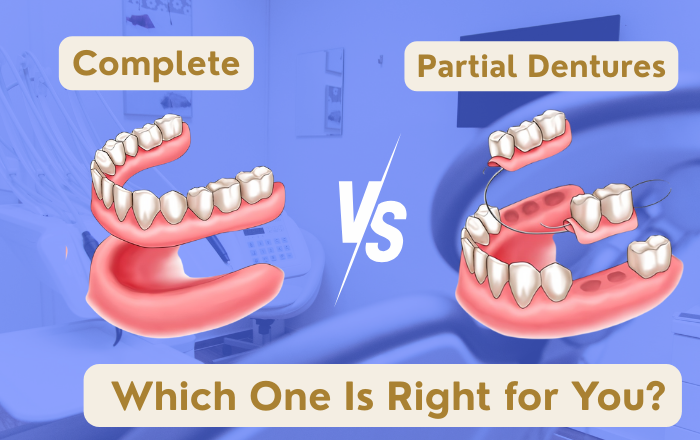Missing teeth can make eating, speaking, and smiling feel uncomfortable. Whether you’ve lost a few teeth or all of them, finding the right solution is important. Dentures offer a way to restore your smile and improve everyday activities. But should you choose complete or partial dentures?
Many people struggle with this decision, wondering which option will feel more natural, last longer, and fit their lifestyle. This guide will help you understand the differences between complete and partial dentures so you can choose what works best for you.
What Are Dentures?
Dentures are removable replacements for missing teeth. They help restore your ability to chew food properly, speak clearly, and smile with confidence. Dentures can be made from materials like acrylic, porcelain, or metal, designed to look as natural as possible.
There are two main types of dentures:
- Complete dentures (for people who have lost all their teeth in an arch)
- Partial dentures (for those who still have some natural teeth)
Understanding these options can help you decide which one suits you best.
Understanding Complete Dentures
What Are Complete Dentures?
Complete dentures replace all the teeth in either the upper or lower jaw. They sit on the gums and are held in place by suction or dental adhesive.
Who Needs Complete Dentures?
You may need complete dentures if:
- You have lost all your teeth due to decay, gum disease, or injury.
- Your remaining teeth are too weak to support partial dentures.
- You want a full set of artificial teeth for a complete smile.
Pros and Cons of Complete Dentures
✅ Pros:
- Helps with chewing and speaking.
- Improves facial appearance by supporting the cheeks and lips.
- Less expensive than dental implants.
❌ Cons:
- Can take time to adjust to.
- May feel loose over time as the gums change shape.
- Requires regular cleaning and maintenance.
Common Materials Used in Complete Dentures
- Acrylic: Lightweight and easier to adjust.
- Porcelain: More natural-looking but heavier and prone to chipping.
Exploring Partial Dentures
What Are Partial Dentures?
Partial dentures replace some missing teeth while keeping the remaining natural teeth intact. They attach to the existing teeth using metal clasps or other connectors.
Who Needs Partial Dentures?
You may need partial dentures if:
- You still have some healthy natural teeth.
- You want a removable and cost-effective option.
- You are not a candidate for dental implants or bridges.
Types of Partial Dentures
- Cast Metal Partial Dentures – Strong and durable, with a metal framework.
- Acrylic Partial Dentures – More affordable but less durable.
- Flexible Partial Dentures – Made of soft material, providing a comfortable fit.
Pros and Cons of Partial Dentures
✅ Pros:
- Preserves remaining natural teeth.
- More stable than complete dentures.
- Can be adjusted or modified over time.
❌ Cons:
- Initial discomfort is common.
- Requires regular cleaning.
- Metal clasps may be visible when smiling.
Cost Comparison: Complete vs. Partial Dentures
The cost of dentures varies depending on materials and customization. On average:
- Complete dentures cost between ₹20,000 to ₹50,000 per arch.
- Partial dentures cost between ₹10,000 to ₹30,000.
Additional costs may include denture relining, replacements, and dental visits. Some insurance plans may cover a portion of the cost.
How to Take Care of Your Dentures
To keep your dentures in good condition, follow these care tips:
✅ Rinse dentures after eating to remove food particles.
✅ Brush them daily with a soft-bristle brush and mild denture cleaner.
✅ Soak them overnight in water or a denture solution.
✅ Avoid using hot water, which can warp the material.
✅ Visit your dentist for adjustments if they feel loose or uncomfortable.
Taking proper care of your dentures helps them last longer and stay comfortable.
FAQs About Dentures
1. Are dentures uncomfortable?
New dentures may feel strange at first, but they should become more comfortable over time. If discomfort persists, a dentist can adjust them.
2. Can I eat normally with dentures?
Yes, but start with soft foods and gradually introduce harder foods. Cutting food into small pieces can also help.
3. What are the best alternatives to dentures?
Dental implants and bridges are common alternatives, but they can be more expensive and require surgery.
Choosing the Right Dentist for Dentures
Getting well-fitted dentures can improve comfort and confidence. If you’re in Kharadi and need dentures, consider Dr. Prithvi Bonde at Teeth Empire Dental Clinic. The clinic provides denture solutions tailored to different needs.
Deciding between complete and partial dentures depends on the number of missing teeth, your lifestyle, and your budget. Both options can help restore your smile and improve your daily life.
If you are considering dentures, visit Dr. Prithvi Bonde at Teeth Empire Dental Clinic in Kharadi. Call 8999421629 to book an appointment today!

